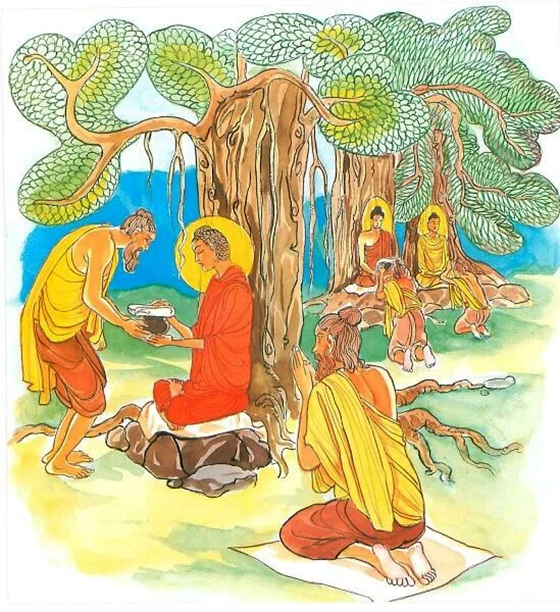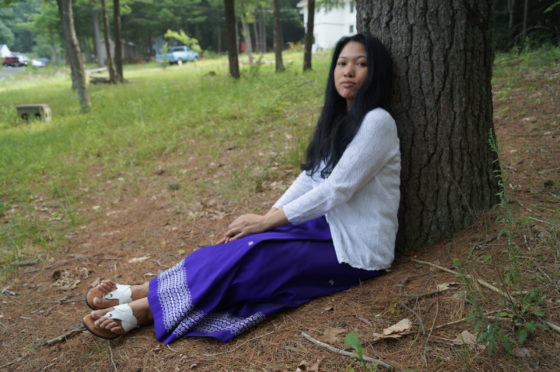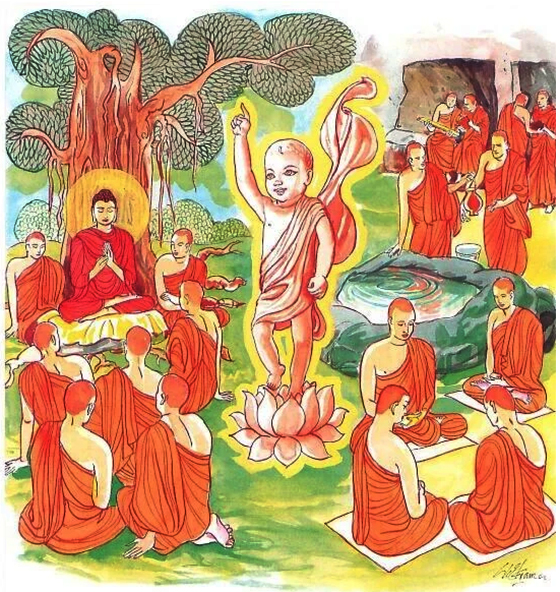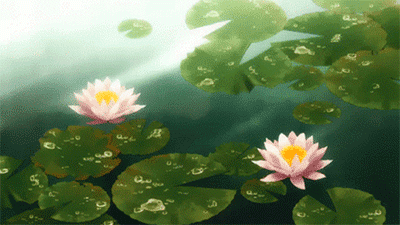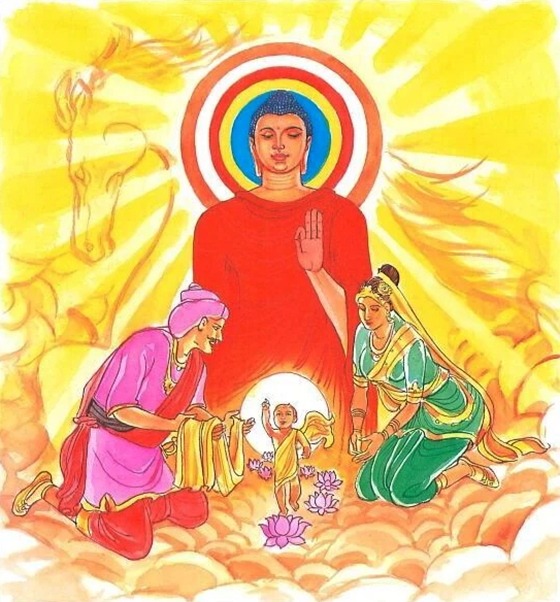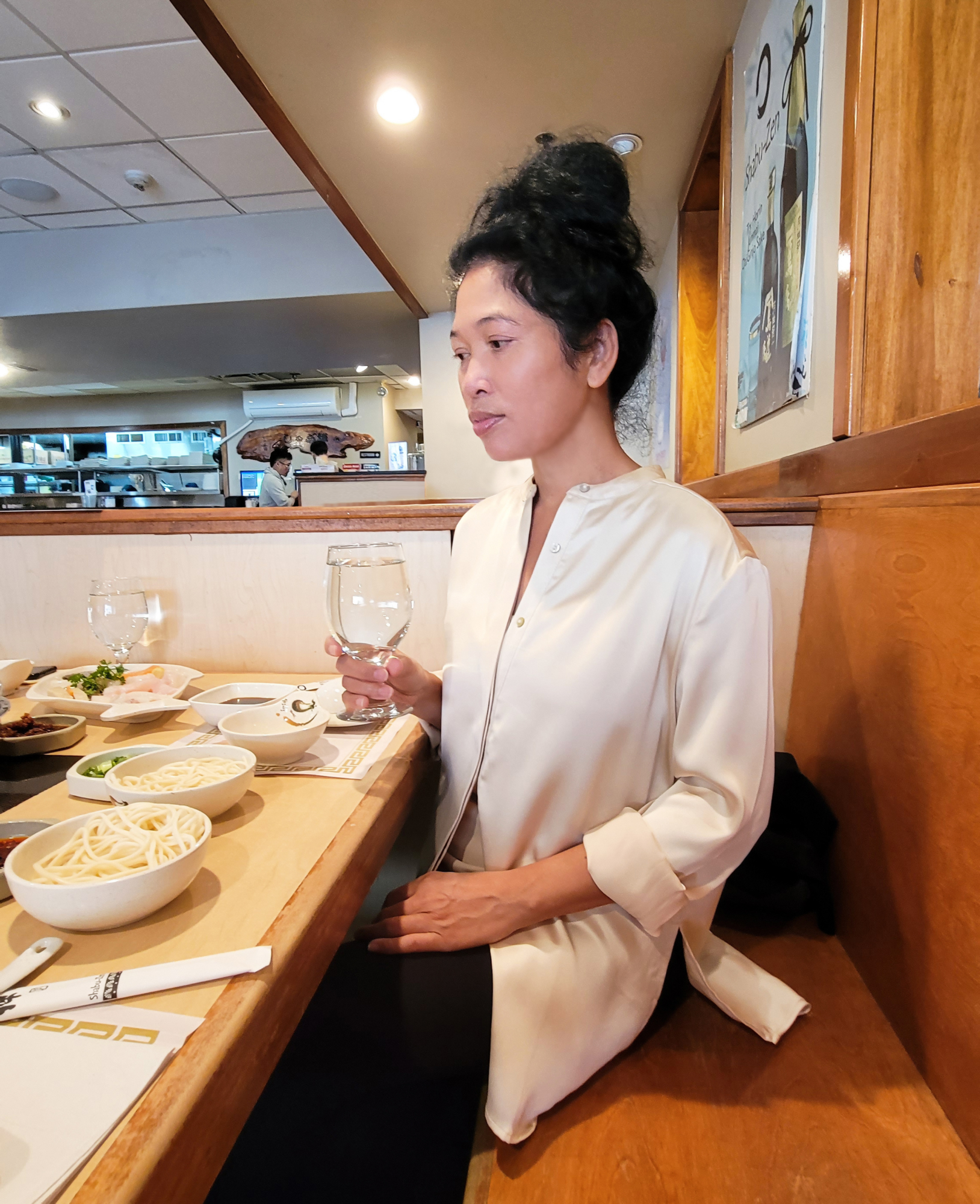-
Comment November 29, 2023
-
Reducing our pride
Comment November 23, 2023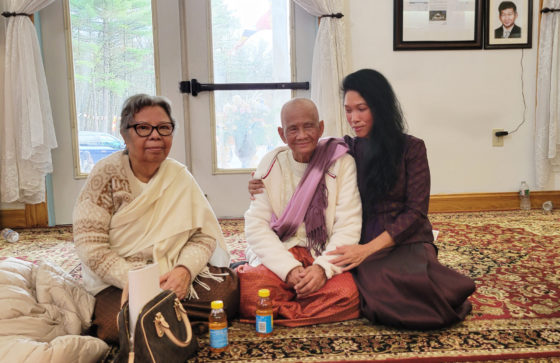
Jendhamuni with Upasika Mony and Upasika Sary during Kathina Ceremony at Wat Kiryvongsa Bopharam, Peace Meditation Center on November 19, 2023.
Reducing our pride does not imply losing confidence — in fact, far from it. There is an important difference between confidence and pride. With pride, we look down on others. We need them to be less for ourselves to be more. Confidence is a virtuous form of pride. You feel able to do good things. ~ 17th Karmapa Continue reading
-
The Story of the Golden Stupa of Kassapa Buddha
Comment November 23, 2023Verse 195: He pays homage to those who are worthy of veneration, whether they are the Buddhas or their disciples who have overcome obstacles (to Insight Development) and have rid themselves of sorrow and lamentation.
Verse 196: The merit gained by such a person who pays homage to those who have been freed from moral defilements and have nothing to fear, cannot be measured by anyone, as this much or that much.
- papancasamatikkante: lit., who have got rid of craving, pride and wrong view, factors lengthening samsara.
The Story of the Golden Stupa of Kassapa Buddha
While travelling from Savatthi to Baranasi, the Buddha uttered Verses (195) and (196) of this book, with reference to a brahmin and the golden stupa of Kassapa Buddha.
On one occasion, while the Buddha and his followers were on a journey to Baranasi they came to a field where there was a spirit-shrine. Not far from the shrine, a brahmin was ploughing the field; seeing the brahmin the Buddha sent for him. When he arrived, the brahmin made obeisance to the shrine but not to the Buddha. To him the Buddha said, “Brahmin, by paying respect to the shrine you are doing a meritorious deed.” That made the brahmin happy. After thus putting him in a favourable frame of mind, the Buddha, by his supernormal power, brought forth the golden stupa of Kassapa Buddha and let it remain visible in the sky. The Buddha then explained to the brahmin and the other bhikkhus that there were four classes of persons worthy of a stupa. They are: the Buddhas (Tathagatas) who are homage-worthy and perfectly self-enlightened, the Paccekabuddhas, the Ariya disciples, and the Universal Monarchs. He also told them about the three types of stupas erected in honour of these four classes of persons. The stupas where corporeal relics are enshrined are known as Sariradhatu cetiya; the stupas and figures made in the likeness of the above four personages are known as Uddissa cetiya; and the stupas where personal effects like robes, bowls, etc. of those revered personages are enshrined are known as Paribhoga cetiya. The Bodhi tree is also included in the Paribhoga cetiya. The Buddha then stressed the importance of paying homage to those who are worthy of veneration. Continue reading
-
I can look up and see their beauty
Comment November 22, 2023 -
Gratefulness is the key to a happy life
4 November 15, 2023Gratefulness is the key to a happy life that we hold in our hands, because if we are not grateful, then no matter how much we have we will not be happy — because we will always want to have something else or something more. ~ David Steindl-Rast
-
We cannot stop what can’t be stopped
Comment November 15, 2023 -
The Story of Many Bhikkhus
Comment November 15, 2023Verse 194: Happy is the arising of a Buddha; happy is the exposition of the Ariya Dhamma; happy is the harmony amongst the Samgha; happy is the practice of those in harmony.
The Story of Many Bhikkhus
While residing at the Jetavana monastery, the Buddha uttered Verse (194) of this book, with reference to many bhikkhus.
Once, five hundred bhikkhus were discussing the question “What constitutes happiness?” These bhikkhus realized that happiness meant different things to different people. Thus, they said, “To some people to have the riches and glory like that of a king’s is happiness, to some people sensual pleasure is happiness, but to others to have good rice cooked with meat is happiness.” While they were talking, the Buddha came in. After learning the subject of their talk, the Buddha said, “Bhikkhus, all the pleasures you have mentioned do not get you out of the round of rebirths. In this world, these constitute happiness: the arising of a Buddha, the opportunity to hear the Teaching of the Sublime Truth, and the harmony amongst the bhikkhus,”
Then the Buddha spoke in verse as follows:
Verse 194: Happy is the arising of a Buddha; happy is the exposition of the Ariya Dhamma; happy is the harmony amongst the Samgha; happy is the practice of those in harmony.
At the end of the discourse the five hundred bhikkhus attained arahatship. Continue reading -
Beauty in the character
Comment November 13, 2023 -
The Story of the Question Raised by Thera Ananda
Comment November 13, 2023Verse 193: It is hard to find the noblest of men; he is not born everywhere nor in every clan. To whatever clan such a wise man is born, that clan prospers.
- purisajanno: According to the Commentary, a Buddha is intended.
-
sukhamedhati: lit., attains happiness or thrives in happiness.
The Story of the Question Raised by Thera Ananda
While residing at the Jetavana monastery, the Buddha uttered Verse (193) of this book, with reference to the question raised by Thera Ananda.
One day, Thera Ananda pondered thus: “Our Teacher has told us that thoroughbreds of elephants are born only among Chaddanta and Uposatha breeds, that thoroughbreds of horses are born only among the Sindh breed, that thoroughbreds of cattle are born only among the Usabha breed. Thus, he had talked to us only about the thoroughbreds of elephants, horses, and cattle, but not of the noblest of men (purisajanno).”
After reflecting thus, Thera Ananda went to the Buddha, and put to him the question of the noblest of men. To him the Buddha replied, “Ananda, the noblest of men is not born everywhere, he is born only among Khattiyamahasala and Brahmanamahasala, the wealthy clans of Khattiya and Brahmana.” Continue reading
-
Appreciation can make a day, even change a life
Comment November 10, 2023“Appreciation can make a day, even change a life. Your willingness to put it into words is all that is necessary.” —Margaret Cousins
“As we express our gratitude, we must never forget that the highest appreciation is not to utter words, but to live by them.” — John F. Kennedy
Act with kindness, but do not expect gratitude. ~ Proverb



